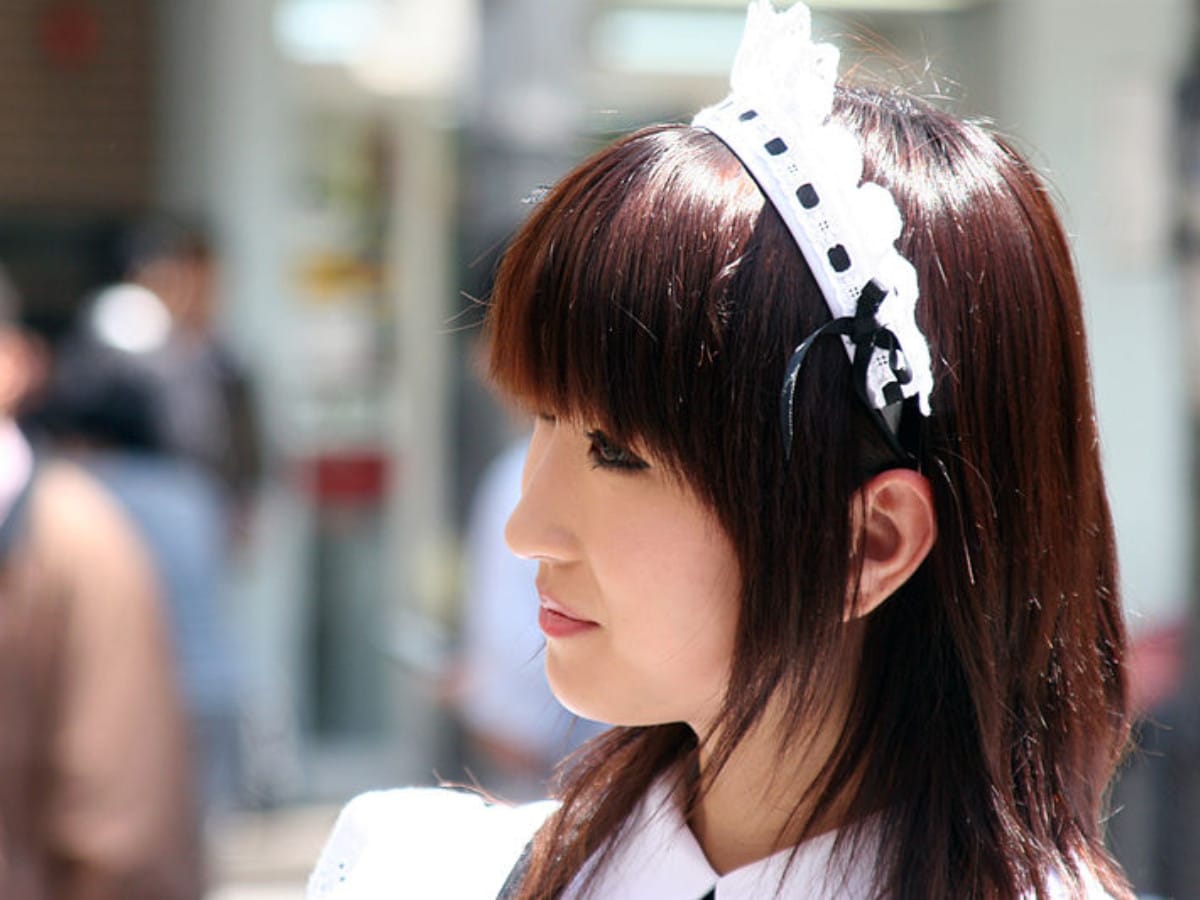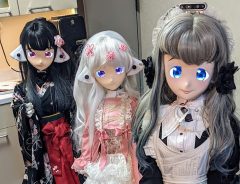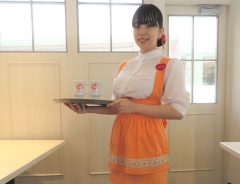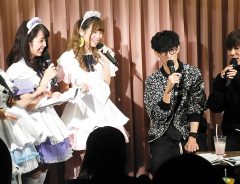
Source: OiMax / https://www.flickr.com/photos/oimax/ / CC BY (https://creativecommons.org/licenses/by/2.0)
What draws customers, and employees, to maid cafes?
- Tags:
- Maid Cafe / Maid Cafes
Related Article
-

“Maid cafes are just the beginning”: Maid robot creator reveals his master plan [Interview]
-

Interview with Masaaki Shiozawa: The “Founding Father” of Maid Clothes
-

Anna Miller’s, American diner known for tasty pies and iconic uniform, to close last branch in Japan
-

TV Anime SSSS.GRIDMAN OP Band OxT Guests On Idol Unit @17’s Radio Show at @home cafe
-

at-home’s adorable Hello Kitty collab menu and costumes coming to Osaka maid cafe for first time
-

The famous maid café, at-home café, will open their biggest flagship in Akihabara!


There are a lot things that are, well, confusing about Japan. Especially the first time you encounter them. Take for example the abundance of oddly specific mascots representing everything from bridges to accounting services and menstrual cycles. There are other oddities in the country like a poop museum and common appreciation of Boj Jovi. Shudder.
And the list keeps going.
Along these lines, we at grape Japan have covered the Akihabara-based phenomenon of maid cafes time and time again. Increasingly a staple of otaku (geek) culture, they began in the Akihabara district of Tokyo renown for its celebration of anime culture. Since their inception in 2001, maid cafes have spread across the country and become a common site in nearly every metropolitan center. The phenomenon has even spread abroad to countries like China, Thailand, and the Czech Republic.
Despite growing numbers, such cosplay-inspired cafes are not cheap, typically costing customers 5000 JPY ($47) or more per visit. Furthermore, it certainly wouldn't be challenging to suggest these places of business objectify the women they employ—dolled-up maids who refer to clients as "master." So, what keeps customers—and employees—coming back and this burgeoning industry afloat throughout trying times?
Maid Cafes
Indeed, maid cafes aren't something you likely find back home. Seeing young maids soliciting customers in the same downtown areas as kyabakura clubs, you could easily get the wrong impression. Fortunately, YouTuber Nobita From Japan provides a nice overview on his channel:
Of course, maid cafes are cafes that employ mostly young women who cosplay as French maids or variants thereof. Cafes serve basic beverages and dishes like omelet rice. Cafe attendants are renowned for their hospitality and are essentially employed to provide quality conversation and companionship. Drawing from the long history of geisha and maiko, employees also entertain clients by playing games and singing and dancing. Performances rely on pop music and seem similar to pop idol concerts.
Compared to hostesses, maids receive a much lower salary. Many maids are college students working part-time, and as such, are paid a typical part-time wage of about 1100 JPY/hour ($10). While hostess clubs are known to "bend the rules" when it comes to intimacy, maid cafes are strictly hands-off. Rules are posted throughout the cafe, and managers reportedly assure safe working environments for their young employees. Photos are also limited and typically cost extra.
Working at a Maid Cafe
Fortunately, maid cafes seem to provide a structured environment for mostly male customers (although some women enjoy them too) to interact with primarily female maids. Nevertheless, this type of interaction isn't entirely free from incidents and uncomfortable situations.
YouTuber Mikan and maid Naomi talk in-depth about what it’s like to work at these cafes.
Fortunately, Naomi enjoys her work. She was drawn to maid work through her interest in anime, particularly Maid Sama! Although she struggled to learn the menu initially, she quickly learned to enjoy performing and entertaining. Naomi hated karaoke originally, but she now likes singing on the job.
Unfortunately, her line of work attracts some undesirable clients. One particularly creepy customer pressured her for a kiss and later harassed other maids. Fortunately, the management forced the customer to leave, and likewise deals with similar problems when they occur.
While Naomi seems to be a natural fit for the profession, YouTuber Akidearest had a different experience:
Despite being a fellow anime fan, Akidearest had a terrible time working at a maid cafe. The YouTuber finds the cafes to be poorly designed and wholly cringy. The "activities" she had to perform were awkward and uncomfortable for her and her customers. Furthermore, there were often communication problems between customers and staff, making everything all the more awkward. All in all, the job isn't for everyone.
Customers
Finally, what about the customers? What do they get from the experience?
Despite misconceptions, customers are likely not seeking eroticism to an exaggerated degree. The plentiful hostess clubs in Japan offer more intimacy, and the country supports a thriving adult industry.
According to psychologist Ryuen Hiramatsu, customers are more likely seeking a platonic connection with the maids that serve them. Contrasted to hostess clubs that emphasize "sexiness," maid cafes rely on "cuteness" to attract customers. Furthermore, a maid's interactions with clients emphasize friendliness while downplaying intimacy. Maids chat with customers from across the table and engage in "play" activities together. While customers may be drawn to hostesses through a sense of romantic conquest, they are likely attracted to maids for a sense of companionship. Therefore, a friendly connection is probably the selling point that keeps regulars coming back.